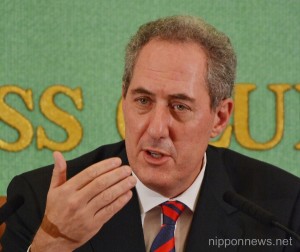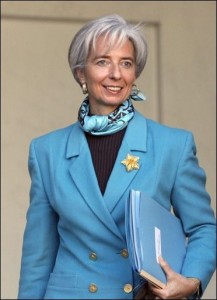Caribbean news. Last week’s World Economic Forum in Davos, Switzerland seems to have boosted the prospects for reforming world trade.
Ministers attending a side-meeting chaired by Swiss Economics Minister Johann Schneider-Ammann agreed to tackle the remaining difficult negotiating topics in the WTO.
This comes hard on the heels of the WTO Ministerial meeting in Bali. See CaribDirect article 21 Jan 2014, The WTO Back in business, that critically assessed what the outcome means for the Caribbean.
But how will those meetings affect the long-running Doha Development Agenda (DDA) and its ambitions to rebalance world trade and secure a better deal for developing countries?
Doha talks
As these negotiations had virtually stalled, it became fashionable to suggest that the time had come to put the moribund DDA out of its misery and start afresh.
Convenient as this might seem, the biggest losers would be the small and weaker economies, because the prospects of getting new talks to focus on their development concerns would be even less promising.
The global economic crisis five years ago dampened enthusiasm for international development and the national agenda often trumps the global approach.
Hence, even if the WTO were to launch a new negotiating round, development would probably not be its centrepiece.
Instead the overarching WTO goal of trade liberalisation would probably take priority.
But Bali changed that calculation. Reaching agreement on Trade Facilitation seems to signal that countries are now prepared to negotiate constructively.
Azevêdo, the WTO chief said as he opened a seminar for diplomats in Lisbon “We now have a ministerial mandate to look anew at core Doha Round issues and to develop a viable new approach”.
The DDA could be back on track.
Davos
Davos seems to have vindicated this optimism. There, Ministers from China, the European Union, Japan, the U.S., India and several other big countries agreed to build on the “positive momentum” set in Bali and tackle the really difficult subjects of agriculture, market access and services
U.S. Trade Representative Michael Froman said that “the WTO’s first order of business must be to finish what we started”.
Where does the Caribbean stand?
Despite this enthusiasm, would revived DDA talks really be good for Caribbean economies? After all, the menu on the negotiating table does not offer much for small developing countries.
If the talks continue on their current track, it is difficult to see how they could succeed in delivering the fundamentally better deal that the countries require.
A change in direction is needed.
The way forward
It is true that the talks have so far only yielded Trade Facilitation and the prospects for a major pro-development outcome are not rosy. However the DDA is the only vehicle available to the Caribbean to negotiate changes to global trade and WTO rules.
But if Caribbean countries go along with the current agenda, they could be short-changing themselves by ruling out the possibility of securing the reforms to the trading system they need to expand their economies.
There is a way though; be active in the negotiations whilst making sure that they tackle proposals for reform that will help the trade of small and vulnerable economies.
For countries with relatively little influence and power; that is easier said than done.
Nonetheless, they have no choice but to push and fight to get their proposals considered and accepted by the WTO since no one else will do it for them.
A three-point Plan
Reflecting on the impetus to revive the DDA, Azevêdo stressed that “Development has to be preserved as the central pillar of our efforts” but warned that delivering is going to be difficult though “not impossible”.
It is urgent therefore that the region ‘ups its game’ if it is to have any chance of securing the better trade deal that it needs.
So what should the Caribbean do?
- determine precisely and clearly those changes to WTO rules that will help it both expand exports and improve the viability and sustainability of its participation in international trade
- work with countries having similar interests, to include their concerns on the agenda
- negotiate hard and astutely to get their proposals accepted in the WTO.
This three-point plan is much more challenging than it might seem, and comes with no guarantee of success. But the Caribbean must press ahead nonetheless.
At Davos, the IMF’s Christine Lagarde signaled, “We need to reset the way the economy grows around the world”.
Change will come; with or without the Caribbean.
Having so much at stake, the region cannot remain on the sidelines and leave other countries to negotiate new rules to benefit just their own trading interests.





